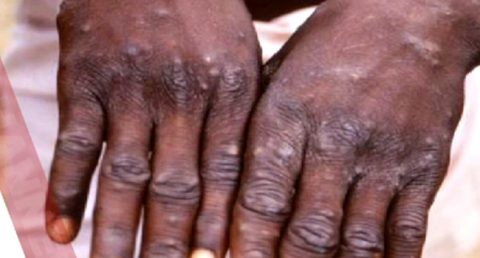Africa To Declare Public Health Emergency Over Monkey Pox
Latest Headlines, News Around Africa, South Africa, Southern Africa, West Africa, World News Friday, August 9th, 2024
(AFRICAN EXAMINER) – The African continent is poised to declare a Public Health Emergency of Continental Security (PHECS) as the Mpox (Monkeypox) outbreak continues to spread across many countries.
Dr Jean Kaseya, Director General of Africa Centre for Disease Control (CDC), said this during a webinar on Thursday on the Mpox outbreak situation in the Democratic Republic of Congo and other African countries.
The News Agency of Nigeria (NAN), reports that Mpox is a viral disease caused by the monkeypox virus. It is similar to smallpox, though generally less severe.
Mpox is characterised by symptoms such as fever, rash, and swollen lymph nodes.
The disease can spread from animals to humans and between humans; through close contact, respiratory droplets, and contaminated objects.
The World Health Organization (WHO) and other health bodies renamed monkeypox to “pox” in 2022 to reduce the stigma and discrimination associated with the original name.
Kaseya highlighted the urgent need for a coordinated response to contain the disease.
“Mpox is the reality, and Africans are dying.
“We are taking decisive actions to protect our people. Next week, more likely, we will declare the PHECS,” he said.
According to him, the move is expected to mobilise resources, streamline cross-border responses, and fortify the continent’s health systems against the outbreak.
He also stressed the importance of engaging the continent’s youths in the fight against the outbreak.
He said that the declaration of the PHECS would be based on guidance from health experts and political leaders across Africa, to ensure a unified and effective approach to the outbreak.
“This call for youths’ involvement is vital to harnessing their energy and innovation in combating the spread of the virus.
“This will help us to have an appropriate response, to help stop this outbreak, and also reinforce the health system in Africa,” Kaseya said.
He said that the Africa CDC had been at the forefront of monitoring and responding to the Mpox outbreak, which has caused significant concern due to its rapid spread and the rising number of fatalities.
“Public health officials have warned that without urgent action, the situation could worsen, putting even more lives at risk.
“As the continent braces for the official declaration of the PHECS, there is a growing sense of urgency to contain the outbreak.
“The declaration is expected to facilitate the rapid deployment of medical supplies, enhance the sharing of critical information, and improve the overall resilience of public health systems across Africa.
“The global community is closely monitoring these developments, recognising that Africa’s response to the Mpox outbreak will have far-reaching implications for public health security both on the continent and worldwide,” he said.
He said that as Mpox cases surge across Africa, with all five regions and 16 countries currently affected, the continent faced a significant public health challenge.
Since January 2022, Africa has recorded 38,465 Mpox cases and 1,456 deaths, with a 160 per cent increase in cases in 2024 compared to 2023.
According to Kaseya, the disease has spread through cross-border transmission, sexual contact, and co-morbidities, particularly in regions with vulnerable populations such as those with malnutrition or HIV.
“The outbreak has reached new countries like Côte d’Ivoire, Kenya, and Uganda, marking their first-ever reported cases,” he said.
Speaking on case sstudy rom the affected countries, Kaseya said that the Côte d’Ivoire’s Ministry of Health declared its first Mpox outbreak, involving a 46-year-old agricultural worker.
He said that a 20-year-old student was also discovered to have contracted the disease, adding that both of them are from Abidjan.
“The mode of exposure remains unclear, and the circulating clade is yet to be identified.
“in Kenya, a 42-year-old long-distance truck driver was identified as the first Mpox case at the Taita Taveta point of entry on the Kenya-Tanzania border.
“in Uganda, two female cases were reported in the Kasese district, both imported from the Democratic Republic of Congo (DRC),” he said.
Kaseya said that Mpox posed a high risk due to its 3.2 per cent case fatality rate, with children under 15 being the most affected, demographically.
NAN recalls that on July 17, the African Union’s Executive Council approved a statute allowing the Africa CDC to make independent public health decisions.
This move followed WHO’s July 23, 2022, declaration of monkeypox as a Public Health Emergency of International Concern (PHEIC), despite Africa dealing with the disease since the 1970s.(NAN)
Related Posts
Short URL: https://www.africanexaminer.com/?p=97221






















